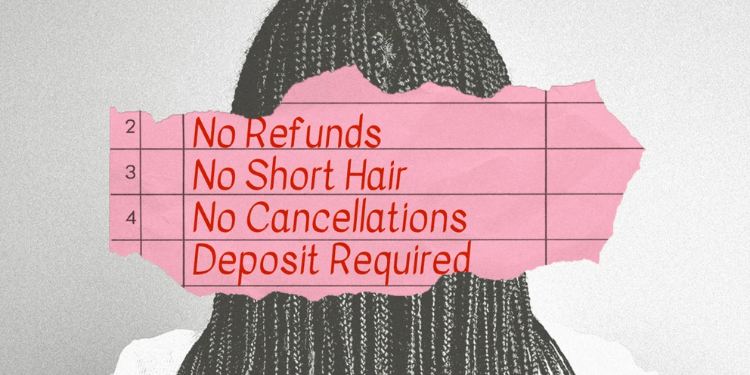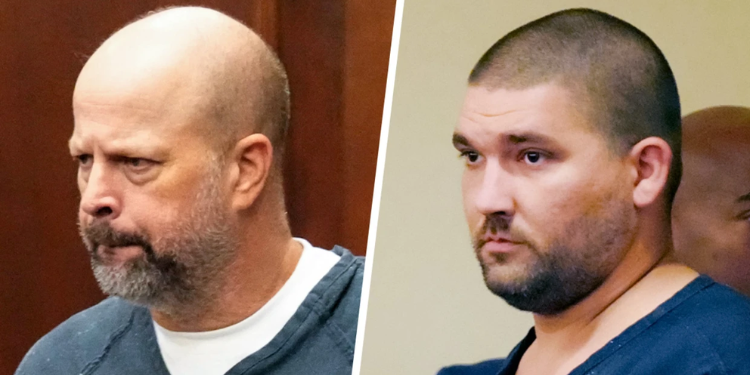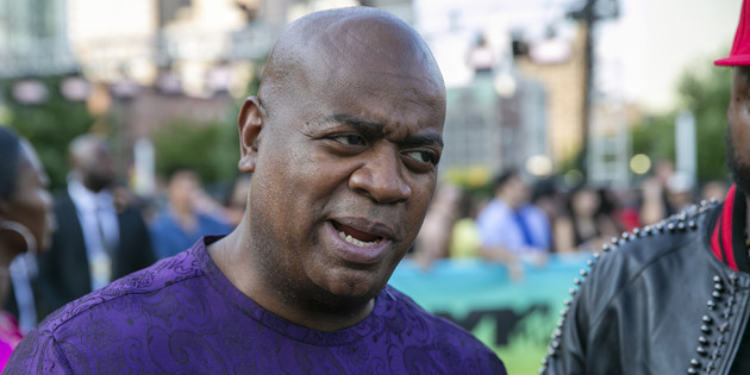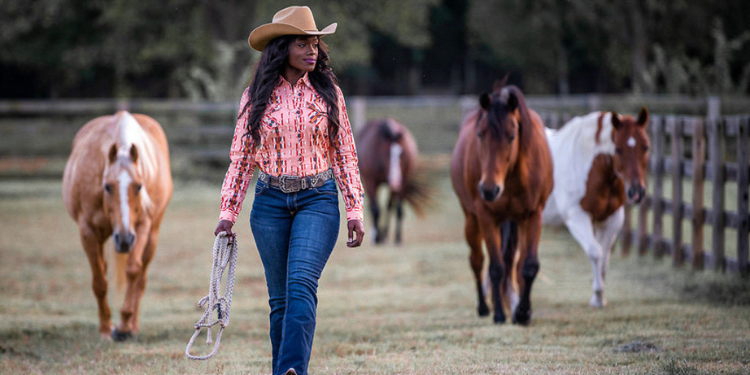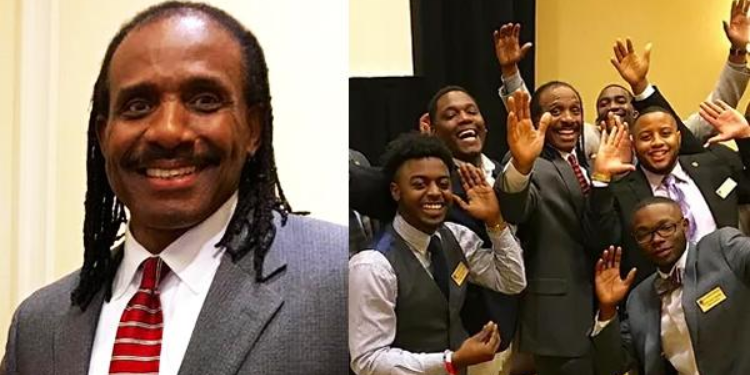Ras Baraka says the Garden State can be a liberal proving ground
Ras Baraka couldn’t be less like Ron DeSantis or Greg Abbott. A Black Democrat raised by activist poets, he is the mayor of New Jersey’s largest city, Newark, and proclaimed it a sanctuary city in the Trump era, ran a guaranteed income program and expanded opportunities to vote.
But he sees a chance to be like the Republican governors of Florida and Texas in one way. If he’s elected governor next year, he says he’d push New Jersey further left and make it a liberal trend-setter in the same way the two red-state governors have held such influence on national issues like immigration and sex education.
“We could be a proving ground,” he said in an interview this month near Newark City Hall.
Baraka is one of the most progressive Democrats in New Jersey, and possibly the nation. He says he’d push New Jersey further to the left at a time of political upheaval, with Sen. Bob Menendez charged with corruption and the race to replace him fracturing Democrats because of the state’s unique endorsement process. Baraka is one of the few elected officials calling for an end to that, which effectively gives local leaders the power to anoint candidates in primaries.
And he does not seem to care much for the back-slapping necessary to gain those leaders’ support.
“People are tired of the same old, same old, and the same people who look the same, who talk the same, who have the same talking points all the time, saying they’re going to do stuff that they’re really not going to do,” Baraka said.
“These people have been giving us Froot Loops and Apple Jacks and telling us it’s different cereal. Like, come on, y’all.”
This interview has been edited for length and clarity.
So what’s your strategy? And why is running for governor good for you?
The folks that I talk to in New Jersey — the voters, the homeowners that have kitchen table issues that they talk about all the time — are really fed up with the way things have actually been going. They want to see something different. They want to see something more imaginative, something more creative, something more assertive, and not the same old, same old that we’ve been getting.
I think people around the state are willing to come together to figure out things on economic prosperity, things like trying not to make the cost of living increase even worse than it is. All those kinds of things — issues around equity and getting more people into the economy, housing are broad-based issues that we have in Newark, we feel them probably more disproportionately than other places. But people have these issues. And all we have to do is let people understand that our issues are your issues, and that me fighting for housing in Newark is the same as you fighting for housing in your community.
Would you say housing is your top issue?
Housing is the number one most expensive issue that we deal with — housing and healthcare. But many people are spending 30 percent of their salary on housing, 50 percent of their salary on housing. You don’t have time or money to do anything else — education, shopping, and those costs are going up. We need to address that. And the problem is when we talk about it, we make it a city issue, but it’s a statewide issue.
New Jersey is deeply segregated. At the base of our segregation is housing. At the base of our educational issues is housing. From Livingston to Newark is eight miles. The life expectancy rate is a 14-year difference between Livingston and Newark. So you are basically condemned by your ZIP code.
Can you talk a little bit about your view on reparations? How should that conversation go?
First of all, you have to be able to have the courage to say reparations and not say, “Oh, we can call it something else other than that.”
The discussion has to at least be getting there — like, how do we create equity, even in our procurement and our spending as we try to do in Newark? How do we make sure people have access to resources, opportunity, to quality education, all those things? …
The governor talks about ‘Black and brown communities suffer the most here disproportionately.’ Everybody says that. So we want to create a budget that does no harm, but not a [state] budget that actually repairs the harm. …
I think the first thing people are afraid of is that you’re blaming them. Well, none of us were there, but the harm of it still exists all the decades, centuries later. When they were giving out loans after World War II, we weren’t getting them, right? All the discrimination that came between that, from lynching to segregation to poor housing — all of those things are barriers, deliberate institutional barriers that prevented people from gaining wealth or access to wealth. …
And so, we’re not even courageous enough to have a discussion about this? I mean, it’s not Mississippi. This is New Jersey, we can talk about this here.
I imagine a lot of people are going to hear what you’re saying and say, “this is New Jersey, it’s not Mississippi, so why should we be having reparations in New Jersey?”
Because we have a wealth gap that is going to take us 200 years to fill. We have the sixth most segregated state in the nation, because we have schools that are some of the best in the country, but all of our kids are not in them — side by side with schools where the majority of kids can’t read on a third grade level. That’s a problem when Black women still die seven times more than white women in hospitals giving birth.
You’re probably the most progressive candidate in the race right now. You’re talking about things like baby bonds, reparations. That’s probably going to have a price tag attached to it. But there could be more middle-of-the-road voters who might normally go for a guy like Murphy or go for a Democrat and look at what you’re saying and say, “that might be a little bit too left for me in a general election.” So how do you deal with that?
Well, I think that there are enough people in this state who understand that we need child tax credits, that we need baby bonds. They understood it, they saw it during Covid. And they understood that this is what kept them surviving in the state. And to explain that clearly to people is what needs to happen. We can appeal to folks throughout the state who understand what economic prosperity means and what they need in order to get a lift, a boost up to do the work that they need to do. Whether you’re Black or brown, whether you are Caucasian, in this community, that community, I think everybody feels the brunt.
Just putting it all together — things like baby bonds, reparations, other programs that you’re probably going to want. But Covid aid is drying up, the revenues are dropping off. There are huge built-in costs. The newest budget for the governor has $11 billion in school funding, a $7 billion pension payment. It’s tight.
That’s why we need to reimagine all of that.
What does that mean?
We need to rethink all this — why are we paying for this stuff? How is it being paid? For who? How are we raising the revenue in the state? Even the school formula itself — like, who’s getting money, who’s not? All those things need to be looked at. Look, I came into office in Newark with a $93 million hole. And the same arguments that people make now, they made then: ‘Oh, businesses are gonna run.’ That’s not what happened. This idea that you can’t do good and be prosperous is wrong.
It sounds very much to me like you’re coming at this from an outsider’s perspective. You’ve been the mayor for 10 years, so you’re not really an outsider.
At the end of the day, the only thing I’m outside of is the traditional way we’ve been doing things. And I’ve even participated in some of the traditional things, and those things are just outdated and broken. And we have to figure out how to do things differently. We can’t have, like, five or six people making decisions for the entire state of New Jersey.
People will actually vote in New Jersey like they’re playing bingo — A1, A2, A3 — and they don’t even know these people. And that’s problematic. It doesn’t serve democracy, it’s wrong. I think right now the process is designed to keep people out of it. We have to figure out how to create more options for voting, same day voting, all these other kinds of things that exist to bring more people into the electoral process.
You would be New Jersey’s first Black governor if elected. How much does that matter to you? And how would that intertwine with your leadership style and how you’d govern if you’re elected?
It means a lot to me because it would mean a lot to my grandmother. And it would mean a lot to my neighbors if that happened. And how I govern would be how I would govern here, ultimately to make sure the least of us are taken care of, to be a Democrat for real.
Going back to the reparations discussion and the wealth gap, do you feel that leaders in Trenton have just been —
Afraid is the word I will use. They’re afraid they’re gonna lose votes, lose their base, which is ridiculous. They talk about it in California, none of those people lost anything. They talk about it in New York, none of those people lost anything. Kathy Hochul talks about it. Nobody threw her out.
What you’re saying is just to talk about it, you’re not even putting out a proposal that says anything, right?
I think people are mature enough in this century to have a discussion about reparations in America, in states like New Jersey. What it turns out to be remains to be seen. I think we figure that out collectively, what that looks like for us in New Jersey. The country has to figure it out in a national way, in my mind, but in the state of New Jersey, like other states, we push here — like cities push the state, the states push the country to do grander things that we just don’t have the resources to do that the country does.
More broadly, though, do you feel like Democrats in Trenton have been, on the progressive front writ large, more timid lately?
I think that the horse trading in New Jersey — the history of it, the way it happens — makes it difficult for us to go further than we need to go. I think there are a lot of Democrats who are ready to go, they just need support.
You were born shortly after the riots, correct? You grew up in this city and you just have a perspective that’s much different from everybody else. So can you just talk a little bit about how that informs your whole worldview and why you’re even wanting to do this?
I was born two years after the Newark Rebellion here. I was a baby when Kenneth Gibson became the first Black mayor of a major city along the eastern seaboard. There’s a picture of me as a baby in Mayor Kenneth Gibson’s arms. My mother had to hide my brother upstairs when the police raided our home. My father was beaten and charged in court for being a part of what was going on in the city — they actually read one of his poems as an example of him being an insurrectionist. So all the things that I saw as a kid definitely inform the way I see the world, the way I see Newark, the way I see New Jersey. And there was no Marshall Plan for us. Nobody came and gave us $100 million grant and said, ‘Fix all this stuff.’ We had to figure it out. …
I love my community and fight for it as desperately as I can, which is why I’m so passionate and committed to the work that we’re doing. And really, I think these people are careerist and ambitious. And I’m not angry at the ambition. I just think that ambition should be big enough to include more people than themselves.
Who’s careerist? The folks in Trenton?
Trenton. The politicians in New Jersey. I think most often folks are careerists. Politics is their career, and they’re looking to advance themselves in their careers, for the most part. And that’s what that ambition is about, advancing in that way. Like, if I didn’t become the mayor it wouldn’t have been the end of the world for me. I feel the same way about being the governor of the state of New Jersey. I won’t run into a corner and be crushed. At the end of the day, I feel like I win anyway.
Do you think about yourself in a broader context beyond New Jersey in terms of your vision and what you’ve done here in Newark?
I think that what we can do in New Jersey would have an impact on the country. I pray that it does the same way that Governor Abbott has an impact on the country, the same way that Governor DeSantis has an impact on the country. Whether we’re talking about affirmative action or voting rights or opportunities for working people in this nation, we can be an example for the rest of the nation.
But that’s basically the extent of what I think. I’m not interested in being on a national scene doing anything. I’m comfortable in my own backyard here, causing trouble.
By Dustin Racioppi









